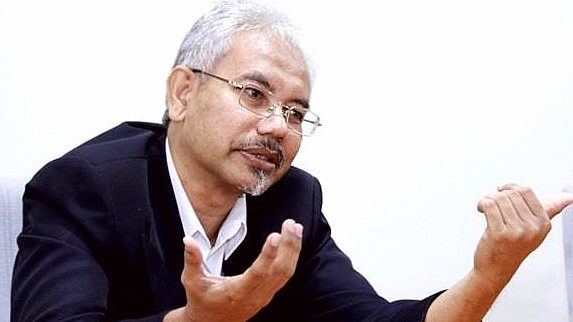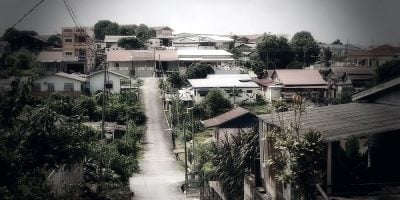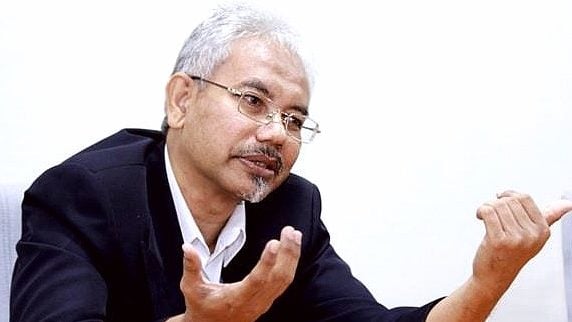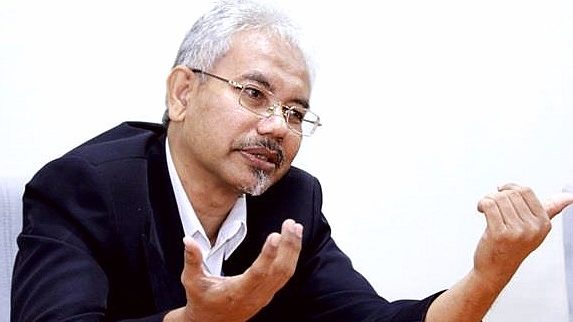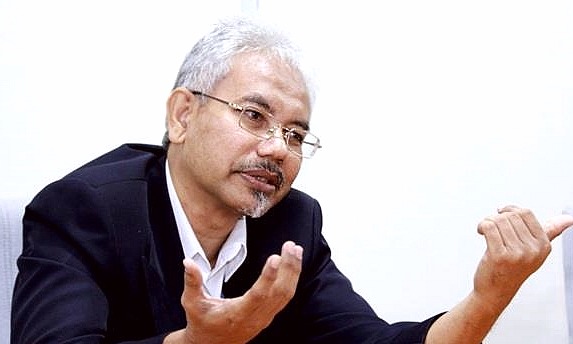
In this article, I wish to describe the two faces of the Islamic Reform movement that swept Malaysia in the 80’s and is now in a position to dictate serious political policies that will either make or break this country.
As a person who supported, followed and idolized the movement and its leaders, I am here not to support either face anymore.
I could write in support of one face but I know that it would still have the potential of becoming the ugly face that would destroy Malaysia.
In the early days of Islamic Reform that began in the 70’s but matured significantly in the 80’s and 90’s, the movement was headed by groups like ABIM, JIM (presently IKRAM), Tabligh and the Ai-Arqam.
PAS was always on the sideline in the 70’s but became stronger and more influential in the 90s and skyrocketed to fame and acceptance by the Malaysian people with the Reformasi movement of Anwar Ibrahim sparked by his unjustified incarceration.
Why was the Islamic Reform important to Malaysia in the 80s and 90s?
I was introduced to the Islamic Reform movement actually in the United States during my JPA-sponsored studies from 1980 to 1986.
There, I met and heard the speeches of Yazid Jaafar, Fadzil Noor, Abu Urwah (Shaari Sungib) and Pak Imaddudin who was from Indonesia.
I had gone to the “Islamic Training Camps” organized by the MISG or Malaysian Islamic Studies Group.
The MISG “brothers” and “sisters” visited Malay students in campuses in America and encouraged the formation of “Usrah Groups” to discuss Islam as a way of life rather than what we knew Islam as a tradition and culture of the Malays.
I was made a leader in my campus at Green Bay and later in Milwaukee.
MISG then was aligned to PAS but kept their political education to us students at a minimum.
The “tarbiyah” or education methodology was to practice the prayer rituals seriously and educate oneself in the literature of modern Islamic reformers like the Egyptians Hassan al-Banna and Syed Qutb, the Iranian Dr. Ali Shariati, the Lebanese Fathi Yakan and the most prolific writer, the Indian Maulana Abul A’la Maududi.
The Malay reformers I knew and read about were Abu Urwah, Fadzil Noor and Abdul Hadi Awang. I bought many books and read them all with inspiring titles like Man and Islam, Towards Understanding Islam, Apa Erti Saya sebagai Muslim, Risalah Usrah, In the Shade of the Qur’an, Fundamentals of Islam and many more published mostly from Indian Muslim press.
I had catalogues to order books and cassette tapes. I bought 200 tapes by Abdul Hadi Awang on his Tafsir Al-Qur’an and listened to them on head phones while I completed my architectural drawings with pens and electric erasers.
I had discovered what I thought was the true Islam.
The First Face of the Islamic Reform movement was magical, inspirational and rational. The narratives of the Muslim in society were laid out clearly in moral and modern practical constructs.
In the early days of the Islamic Reform, we were taught that Muslims who were high in moral values and feared Allah would make good social and political leaders.
Secondly, we were taught that Islam abhorred racism and nationalism and rejected both completely. In Islam, you were good because of your deeds and values, not your cultural upbringing nor your economic or political strength.
Thirdly, we were taught to never look down on others who are non-Muslims, and treat them with fairness and justice at all times.
Fourthly we were taught to defend Islam only if it were threatened by anyone, Muslim or non-Muslim who rejected the Islam of the Prophet Muhammad and not the Islam of tradition, political expediency or inherited wealth.
The Muslim was supposed to be compassionate, upstanding, and a person of high morality that would be a good example of a human being, a community member and a political leader for all mankind.
He or she would make decisions based on modern knowledge, diplomacy and within the liberal and open guidance of the Sunnah.
For 30 long years, I supported this idealism and thought that this was the only narrative that would make Malays forego the racial and nationalism of Umno. PAS and its members then were the epitome of the political future of Malaysia with ABIM, JIM and Tabligh as the social Muslim fabric to hold Malaysia together.
The Al-Arqam which was a Sufistic movement was destroyed by the official institutions of religion as deviants from Islam when its leader Shaari was elevated by its followers as the Messiah to mankind.
When I returned from my studies, I joined PAS as a member and attended most of their muktamars. I even slept at the famed Masjid Rusila and also met personally with Hadi Awang at his house when he became chief minister of Terengganu.
I also followed the Tabligh travels for a few days and attended the conventions and gatherings organized by ABIM and IKRAM.
I sent two of my daughters to the Islamic School of IKRAM for a few years. I was in full support of PAS, ABIM, IKRAM and Tabligh as the four entities struggled to keep the fires of Reformasi alive and establish a more just Islamic government.
However, in the last ten years, PAS has become a different animal altogether.
At first, talks of working with Umno were dismissed as untrue but later on the new line of leadership kicked out the progressive thinking members like Mat Sabu, Dr. Mujahid, Sallehuddin and Dr. Dzulkifli under an Umno style campaign of untruths, lies and deceit.
The new leadership of PAS began to spout racist rhetoric under the framework of Islamic political ideology.
The present leadership of PAS destroyed Hindu shrines without any compassion for other faiths, accused all non-Muslims as prone to corruption, rejected progressive thinking Muslims as liberals and deviants, isolated Muslims from cultural festivals and told Muslims to trust only Muslims as leaders and not other Malaysians.
The new PAS worked with known corrupt politicians and even “justified” corruption while its new minister of religion became the poster boy of Malaysian disunity.
The new Islamic Reform movement seems to say “Islam must be at the top leadership of Malaysia and nothing else will be accepted because this is the message of Allah to Muslims.”
The new Islamic narrative disrespect the Constitution and Rukun Negara.
Both the Muslim leadership in Umno and Bersatu are completely silent against this new Islamic political narrative advocated by PAS.
As I witness the unfolding of this new Face of Islamic Reform, I felt sad, betrayed and disgusted by not only PAS but also NGOs like ABIM, IKRAM and Tabligh.
Where were they when all this was happening with PAS leaders burning our country with this new toxic narrative? Where were the professors of Islamic studies and muftis while PAS destroyed the very foundation of decent Islam and the fundamental principles of multiculturalism, democracy and spirituality?
I noticed that the Islamic social and political movements and institutions do not have a discourse on art, on culture, on Western political and philosophical thoughts as well as the 17 sustainable Development Goals of the United Nations.
All these schools of Islamic teachings isolate young Muslims from the Malaysia that we founded and the global humanity that we sought together.
Even though there are compassionate, rational and critical thoughts on Islam and modern living by luminaries such as Siddiq Fadzil, Kamal Hassan and Osman Bakar, all three failed miserably to take charge of the popular narrative and preferred their own seminar rooms to articulate their ideas.
Thus, if the teachings of Islam and the modern world do not include the subjects of art, culture, philosophy and critical thoughts, the good intentions of NGOs and universities would eventually become the feeders to extremists’ thoughts the likes of political parties with Islam as their name and weapon of mass destruction.
Both faces of the Islamic Reform are now a liability to nation-building and global coexistence.
(Prof Dr. Mohd Tajuddin Mohd Rasdi is Professor of Architecture at a local university and his writing reflects his own personal opinion entirely.)
ADVERTISEMENT
ADVERTISEMENT







